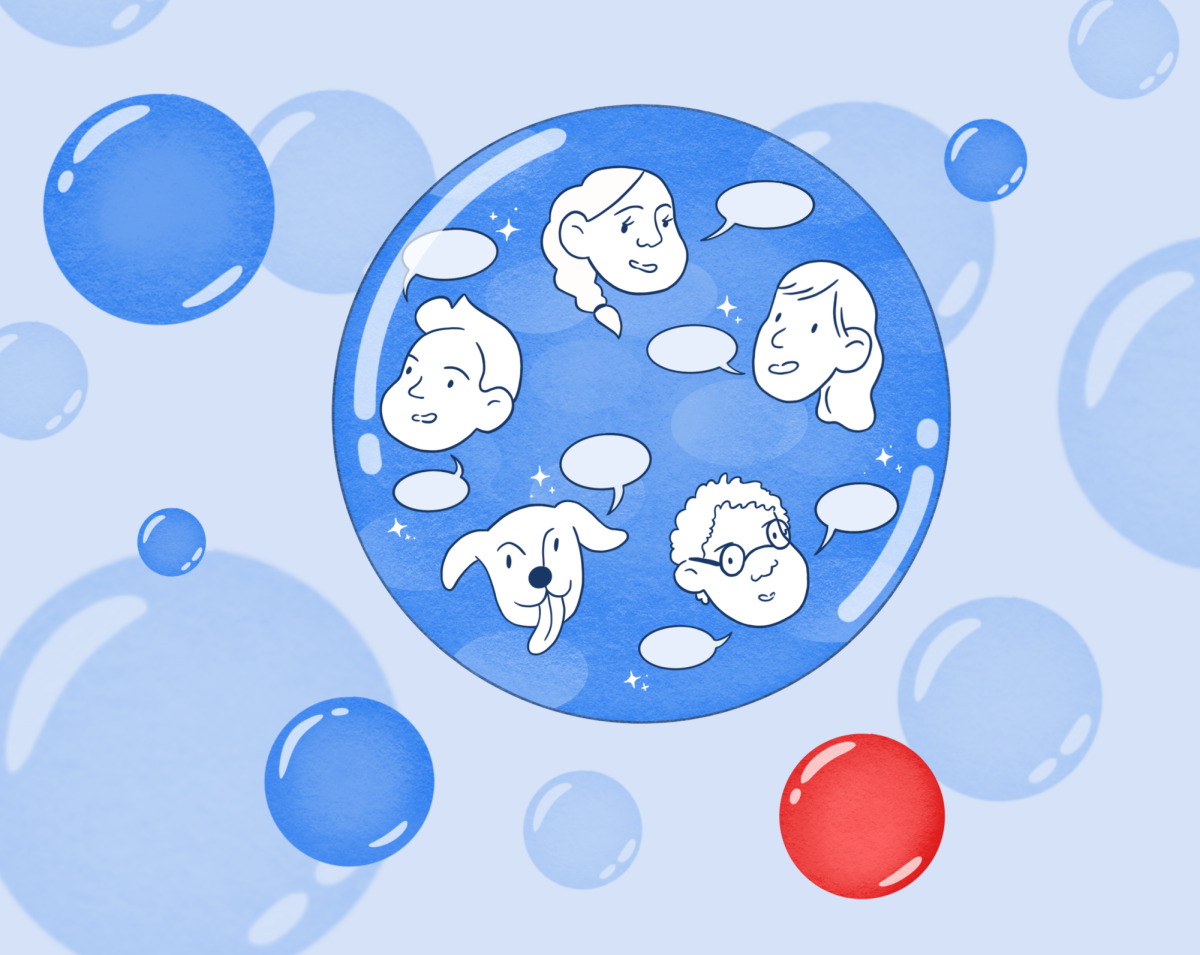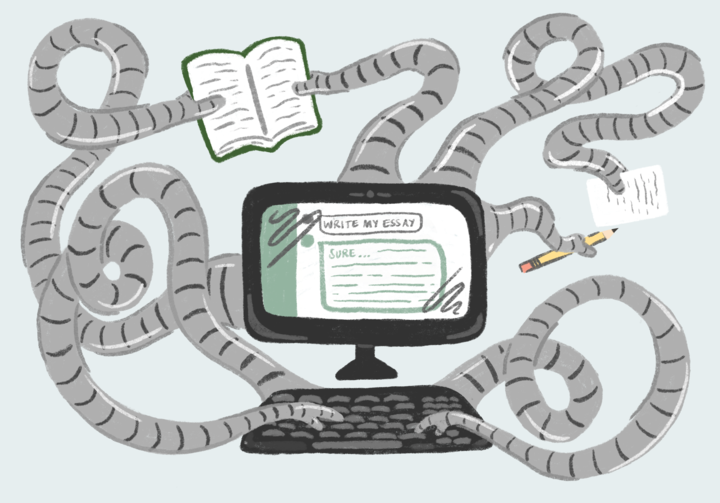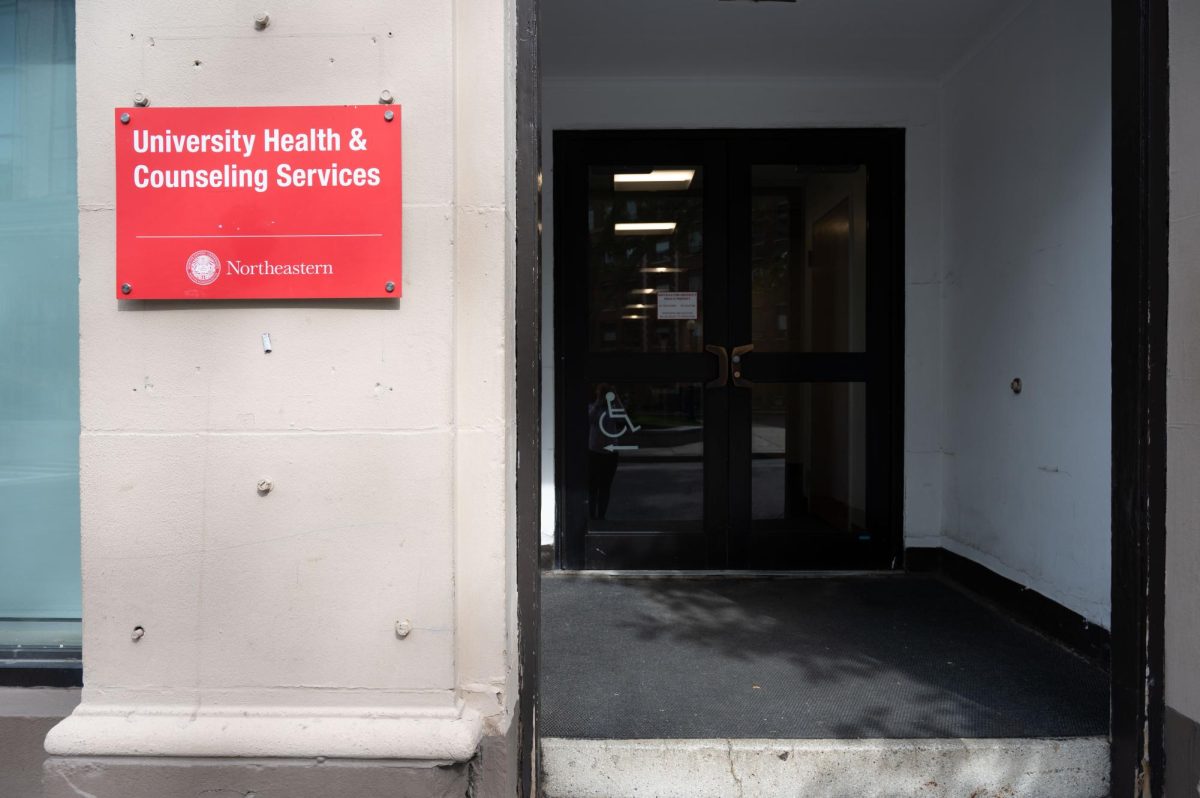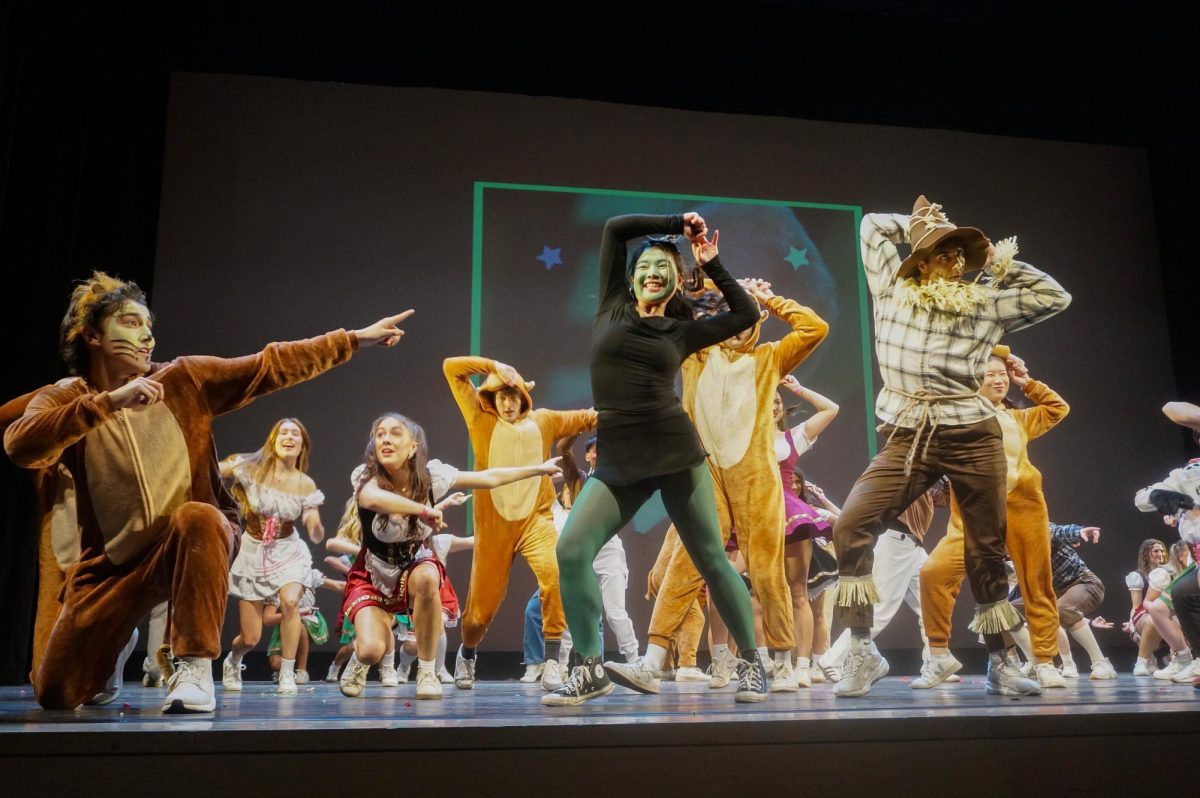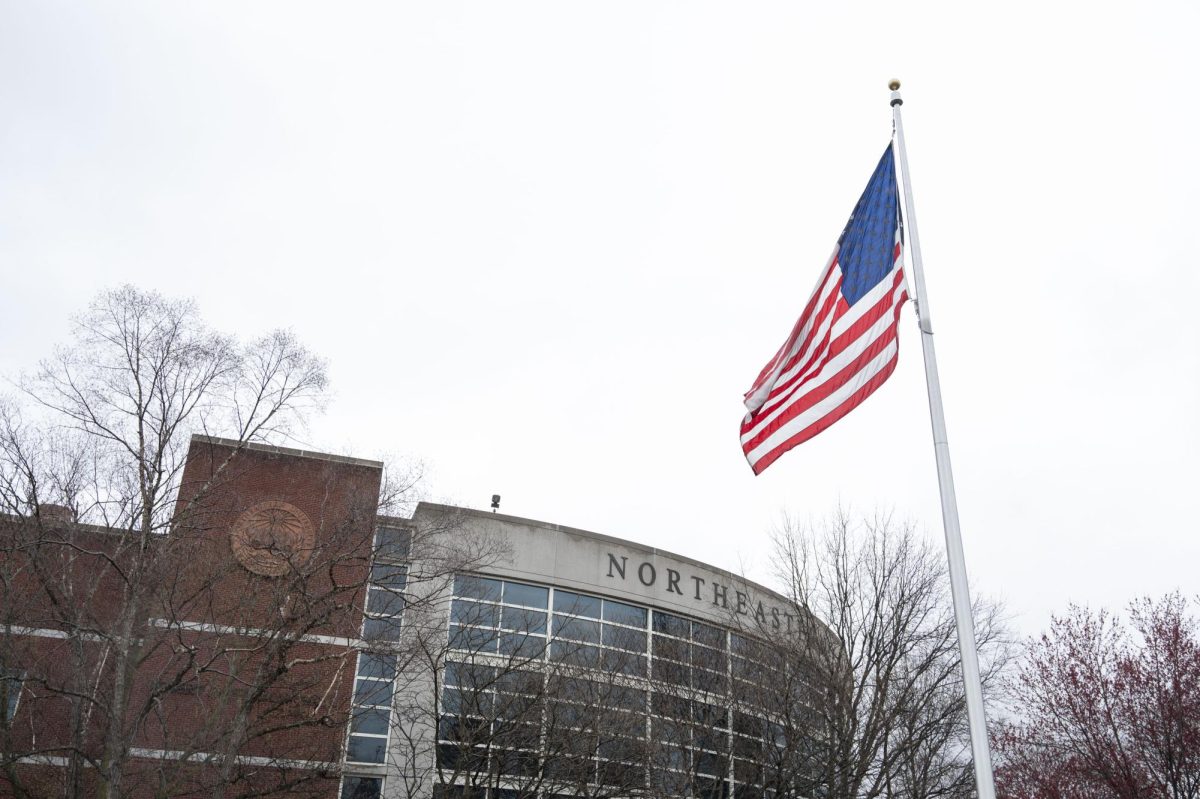With its 5.2% acceptance rate, getting into Northeastern is no small feat. But once students arrive, some say the intellectual challenge stops. Classrooms, which are meant to be spaces for debate and discussion, turn into echo chambers for many students.
Hope Broadhurst, a third-year journalism and history combined major, said this environment hinders discussions in class.
“I thought everyone in the class was so smart, but we never, ever disagreed,” Broadhurst said. “It was the exact same language; it’s the same lexicon. We all used the same set of words.”
Northeastern is currently ranked as the 16th-most liberal college in America, according to Niche. This left-leaning climate was reflected in a poll conducted by The Huntington News last fall, which found that 85.6% of Northeastern students planned to vote for Kamala Harris in the 2024 elections. Many students say the lack of political diversity often makes in-class conversations feel like roundabout discussions rather than animated debates.
“In class, it’s just like, ‘And to build off of that,’ ‘And to piggyback off of that,’ ‘And in agreement with that.’ Just a crazy chain of repeat, repeat, repeat,” said Cambel Shim, a first-year political science and communication studies combined major.
For Broadhurst, the lack of debate in the classroom raises the question of whether Northeastern students are prepared to take part in more confrontational political discourse outside of a university setting.
“I think it gives the illusion that your beliefs are unanimous,” Broadhurst said. “The biggest detriment to people is that it doesn’t allow them to actually have the skills to defend their beliefs.”
Shim recounted one instance in which a classmate offered an opposing viewpoint during an in-class discussion and the impact it had on them and their peers.
“Somebody, a man, had just been like, ‘I don’t agree,’ and everyone stopped in their tracks because we were all kind of agreeing with each other and bouncing off of each other, and then we’re immediately hit with that disagreement — it’s difficult,” Shim said.
Northeastern also finds itself at the center of one of the nation’s liberal strongholds. Massachusetts is consistently ranked as one of the most Democratic states in the nation, with 61% of voters voting blue in the 2024 presidential election, according to NBC.
“Being in these liberal bubbles has honestly made me more critical of the Democratic Party in the U.S.,” said Neil Olsson, a first-year international affairs and economics combined major from Washington D.C., where 92.46% of voters cast their ballot for Kamala Harris in the 2024 election.
Olsson said political bubbles create passiveness in the Democratic Party, something he attributes as being a key issue in the 2024 presidential election. Many Northeastern students were stunned by President Donald Trump’s win, a result that appeared to contrast expectations on campus.
“With the Democrats, they just presume that people will hate Trump, which is just a really dumb way of doing it, and it lost them an election,” Olsson said.
Broadhurst said existing in these political bubbles can cause some students to freeze up in instances of disagreement.
“They don’t have the skills to go out into the real world where someone actually has a really good rebuttal to their argument,” Broadhurst said. “I think people are absolutely floored; they have no resilience to any kind of affront to their argument.”
Shim said that while the political bubble on campus may not pose an immediate issue, it could become a larger problem down the line for students moving to areas with different political makeups, especially if they are unaccustomed to engaging with opposing viewpoints.
“We have the privilege of being negligent because we live in Massachusetts,” Shim said. “But you may not always live in Massachusetts, and you may not always be employed in Massachusetts, so I think it is imperative to challenge yourself.”
While it’s easy to point out the minimal political diversity on campus and the impact it may have on students, the question students are left with is what they can do to ensure they are engaging in meaningful discourse.
One solution may be hiding in plain sight: coursework.
“I think students should tap back into text and literature and textbooks that we are given because they have integrated disagreement conversation,” Shim said. “I think people tend to only listen to class discussion rather than reading your textbooks or engaging with your professor. I find professors are most ready and willing to play devil’s advocate in the moment.”
Another way that some students have sought out political discussion is through debates conducted by the Northeastern University College Democrats and College Republicans, providing an atmosphere in which students can discuss and defend their conflicting opinions.
“The fact is, at the end of the day, if you’re hearing what you’re saying echoed eight times, you’re not learning anything, so you need to challenge yourself,” Shim said.



